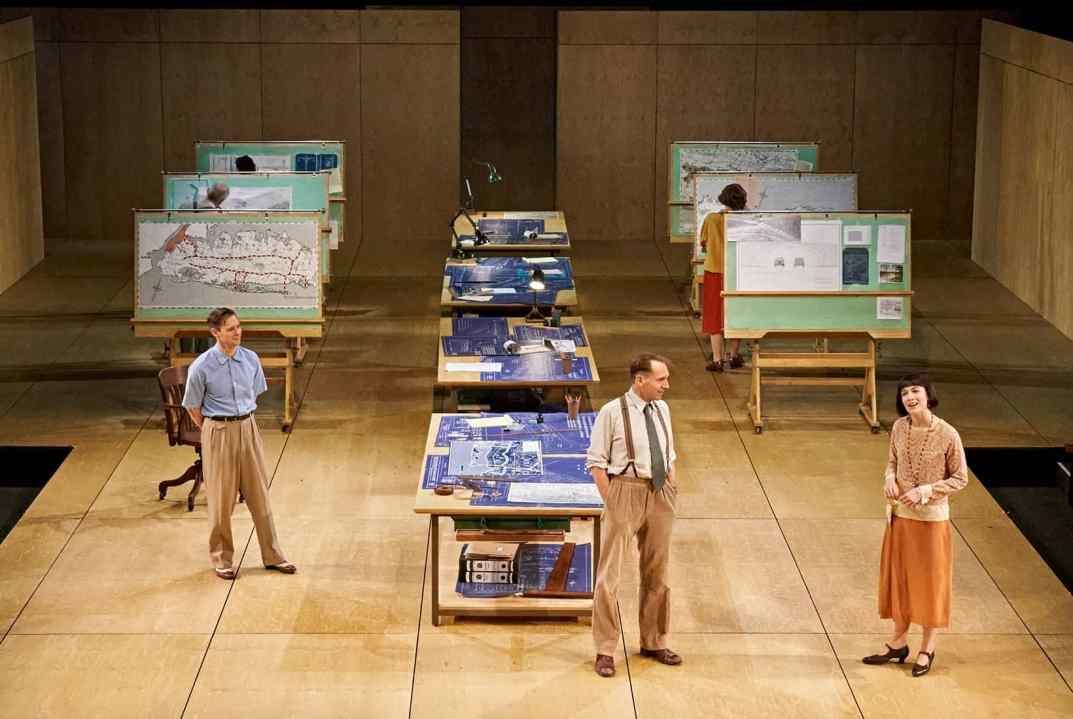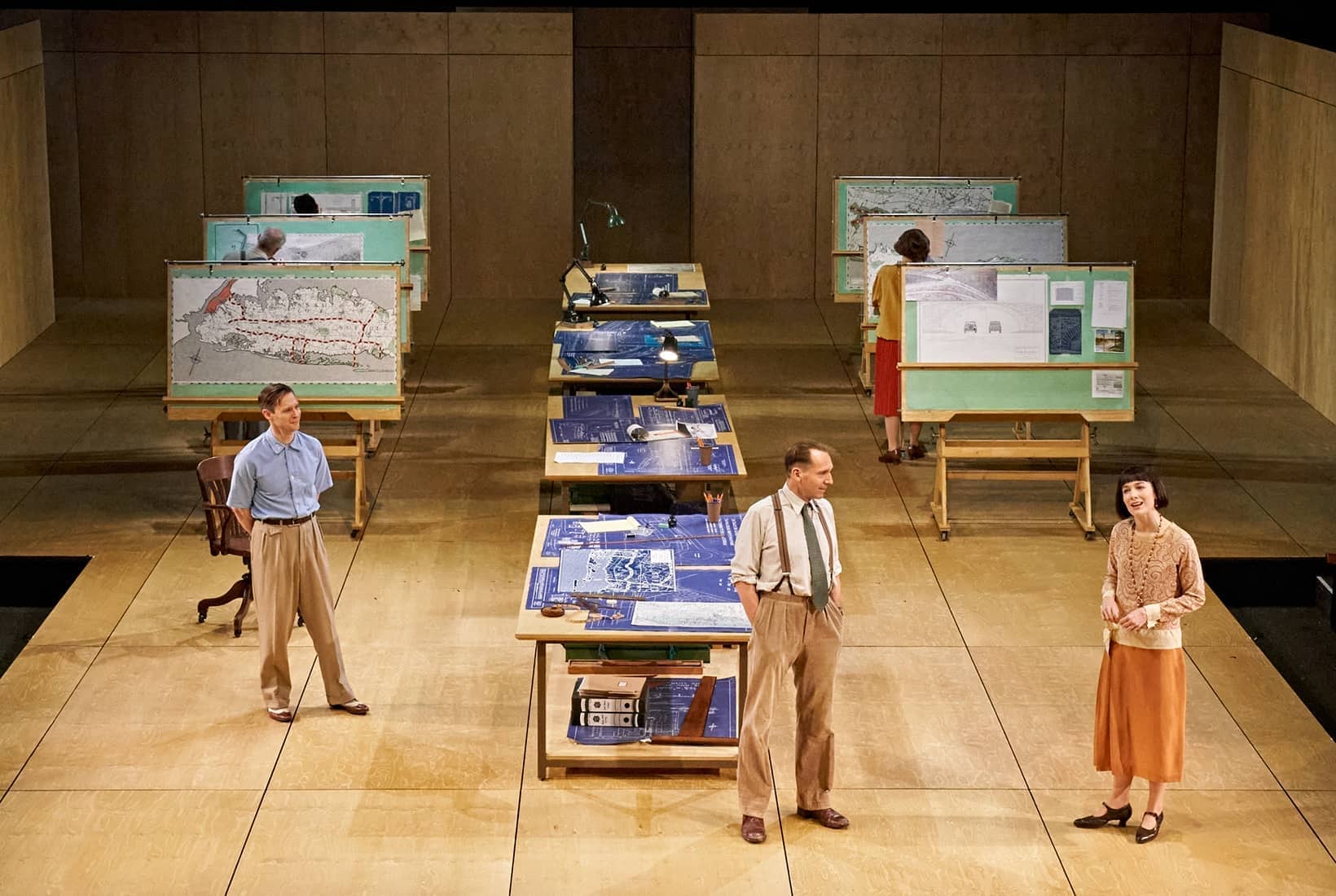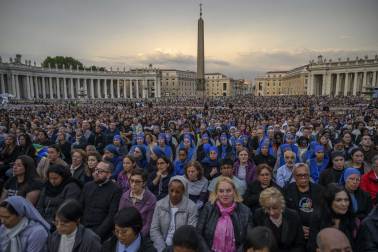It’s good of Nicholas Hytner to let Londoners see David Hare’s new play before it travels to Broadway where it belongs. Few Brits will know the subject, Robert Moses, an urban planner of the 1920s who built the roads and bridges that gave New Yorkers access to seaside resorts in Long Island.
This is a play for bureaucrats. Nit-picking and box-ticking are the main points of interest. Squiggles on forms. Correct signatures at the bottom of proof-read documents. Hare is copying George Bernard Shaw and his script is a celebration of rhetoric above all other qualities. Dialogue-junkies will enjoy the screeds of quickfire chatter that keep the play motoring along. And like Shaw, Hare omits many of the elements that make a drama feel lifelike. There’s no romance or intrigue, no narrative complexity, no family relationships. We learn that Moses has a wife, Mary, who turns to drink at some point. Why? Was he a monster at home? Certainly he’s arrogant, single-minded and self-centred but so are most alpha males.
Hare is copying George Bernard Shaw and his script is a celebration of rhetoric above all other qualities
One of his worst crimes is to knock down overcrowded apartment blocks and replace them with healthier living quarters for their black and Hispanic tenants. Not much of a sin. And his resorts are intended for car-owners but not for trippers who arrive by coach or train. So he’s a car snob. Hardly unforgiveable. The first act concentrates on his efforts to construct roads between New York and the outer suburbs. In Act Two he has to build a handful of east-west expressways across Manhattan to ease the flow of traffic. So Act Two is a repeat of Act One. But Moses is now 30 years older. Yet his character is unchanged.
He’s challenged by a gang of reformers who want to stop him wrecking their inner-city neighbourhood.










Comments
Join the debate for just £1 a month
Be part of the conversation with other Spectator readers by getting your first three months for £3.
UNLOCK ACCESS Just £1 a monthAlready a subscriber? Log in